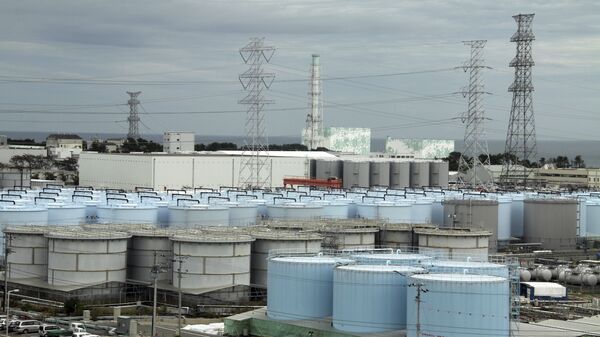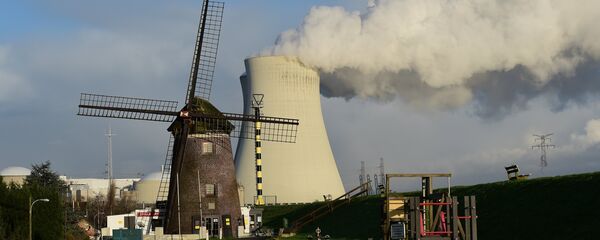Sputnik: What role have the NGOs come to have in the climate change debate? And, in particular, how does your organization contribute to this?
Thomas Blees: Our organization primarily is interested in fixing the climate change issue while at the same time producing virtually unlimited clean energy for the planet, and that's a tricky thing but it can be done, and I don't think it can be done without nuclear power. So our organization works a lot with advanced nuclear power systems, but on the other hand, if you do produce essentially affordable energy for the entire world, then everybody's standard of living starts to rise, and then you start using more resources, so then a lot of people say that if everyone had the same standard of living as in the developed countries you would need seven or eight Earth to supply enough resources, and that's not really true.
There is a pilot project that was built in Great Britain and it works, like nuclear power it's a question of politics. The most frustrating thing for me, running this NGO is not the fact that we don't have the technology to fix all these problems, it's that we do have the technology to fix them, and politics is always in the way. So you know how to build nuclear reactors that burn nuclear waste as fuel, you'll never run out of fuel, we've got enough out of the ground for about a thousand years already, so we wouldn't have to mine anything, we know how to recycle everything, and none of this is being done because politicians are very slow, so essentially our organization, our NGO is just pushing to make these things a reality.
Sputnik: You support the widespread use of nuclear energy technology which is a very emotional issue for many people, can you please tell us some of the arguments that you make in favor of it? And why do you think it can be a green solution to the world's energy problems?
Thomas Blees: I think the main question is one of energy density. You see that humans used to use wood for energy and then they started using coal, and then they started using oil and gas, and we use more and more energy dense materials. Today, because we're concerned about fossil fuels and about climate change, we've kind of gone in the other direction, people want to use windmills and solar panels, but solar energy is very diffused, it's very not energy dense at all.
If you look at advanced nuclear power you've got all the energy storage that you need, because it's so energy dense, that if you were to figure out all the energy that you were going to use in your lifetime for everything: for your cars, for your transportation, for heating and cooling, for the energy that goes into producing the food that you eat, the transportation to get it to you, the energy that goes into the manufacturing your telephone, all the things that you use, the refrigeration, everything, your personal energy footprint. If you're going to use a piece of coal to provide all of the energy you're going to use it would be like a large house, like about a 3,000-4,000 square-foot house, a chunk of coal would have to be that big. If you use depleted uranium, which we have millions of tons of, already out of the ground, it would be the size of a half a ping-pong ball, so why do we need energy storage, we already have energy storage, it's in uranium, and we've got the uranium already out of the ground, it's sitting around, we want to get rid of it even.
Sputnik: You've said that some nuclear plants can use wasted water so you don't really have to use natural resources, how realistic is this to be implemented worldwide?
Thomas Blees: Anywhere where you have cities that need power you have waste water because of the sewage treatment systems that people have, so it's entirely realistic. You can also just use air cooling, you don't even need to use water cooling, it's more expensive to build air cooled systems, just like you have a car that is air cooled, some cars are air cooled, you can air cool nuclear power plants, but it's also quite easy to just build the majority of your power plants along rivers or along ocean coastlines and just use water to cool it, so it's not really a problem. We know how to fix all of this.
The views of the speaker do not necessarily reflect those of Sputnik.




